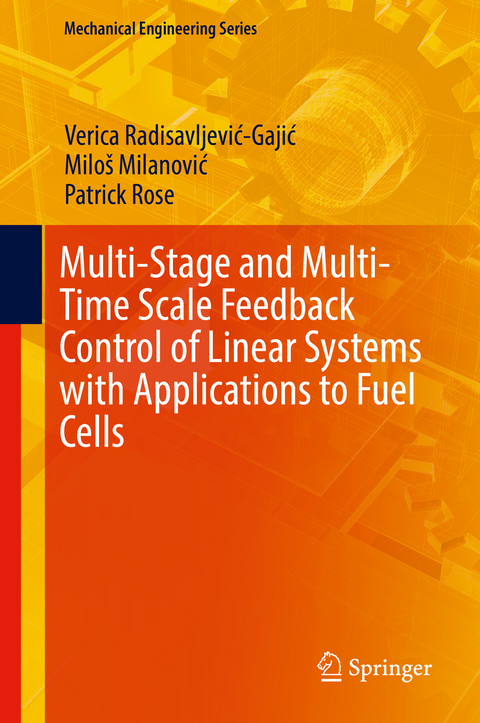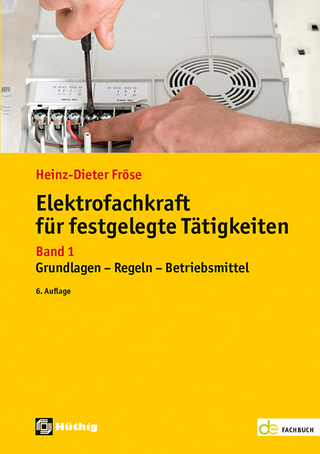
Multi-Stage and Multi-Time Scale Feedback Control of Linear Systems with Applications to Fuel Cells
Springer International Publishing (Verlag)
9783030103880 (ISBN)
This book provides a comprehensive study of multi-stage and multi-time scale design of feedback controllers for linear dynamic systems. It examines different types of controllers as can be designed for different parts of the system (subsystems) using corresponding feedback gains obtained by performing calculations (design) only with subsystem (reduced-order) matrices.The advantages of the multi-stage/multi-time scale design are presented and conditions for implementation of these controllers are established. Complete derivations and corresponding design techniques are presented for two-stage/two-time-scale, three-stage/three-time scale, and four-stage/four-time-scale systems. The techniques developed have potential applications to a large number of real physical systems. The design techniques are demonstrated on examples of mathematical models of fuel cells, especially the proton exchange membrane fuel cell.
Dr. Verica Radisavljevic-Gajic is an Assistant Professor in the Department of Mechanical Engineering at Villanova University. Mr. Milos Milanovic is a graduate student in the Department of Mechanical Engineering at Villanova University. Mr. Patrick Rose is a graduate student in the Department of Mechanical Engineering at Villanova University. Dr. Garrett Clayton is an Associate Professor in the Department of Mechanical Engineering at Villanova University.
Introduction.- Continuous-Time Two-Stage Feedback Controller Design.- Discrete-Time Two-Stage Feedback Controller Design.- Three-Stage Continuous-Time Feedback Controller Design.- Three-Stage Discrete-Time Feedback Controller Design.- Four-Stage Continuous-Time Feedback Controller Design.- Modelling and System Analysis of PEM Fuel Cells.- Control of a Hydrogen Gas Processing System.- Extensions to Multi-Stages and Multi-Time Scale.- References.- Index.
"In this book, the authors demonstrate that the use of reduced-order matrices for designing controllers for subsystems in feedback control systems offers a compelling approach to manage complexity, reduce computational demands, enhance accuracy, and ensure robustness, reliability, and security in cyber-physical systems. This methodology empowers engineers and researchers to tackle the challenges of modern, interconnected systems effectively, contributing to safer and more efficient technological advancements." (Kaïs Ammari, zbMATH 1522.93007, 2023)
“In this book, the authors demonstrate that the use of reduced-order matrices for designing controllers for subsystems in feedback control systems offers a compelling approach to manage complexity, reduce computational demands, enhance accuracy, and ensure robustness, reliability, and security in cyber-physical systems. This methodology empowers engineers and researchers to tackle the challenges of modern, interconnected systems effectively, contributing to safer and more efficient technological advancements.” (Kaïs Ammari, zbMATH 1522.93007, 2023)
| Erscheinungsdatum | 23.02.2019 |
|---|---|
| Reihe/Serie | Mechanical Engineering Series |
| Zusatzinfo | XI, 214 p. 23 illus., 16 illus. in color. |
| Verlagsort | Cham |
| Sprache | englisch |
| Maße | 155 x 235 mm |
| Gewicht | 507 g |
| Themenwelt | Technik ► Elektrotechnik / Energietechnik |
| Schlagworte | control of fuel cell • Feedback Control • linear dynamic control systems • multi-stage design • multi-timescale design |
| ISBN-13 | 9783030103880 / 9783030103880 |
| Zustand | Neuware |
| Informationen gemäß Produktsicherheitsverordnung (GPSR) | |
| Haben Sie eine Frage zum Produkt? |
aus dem Bereich


